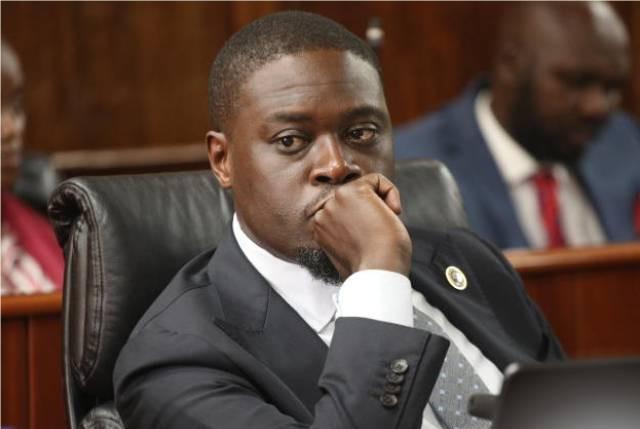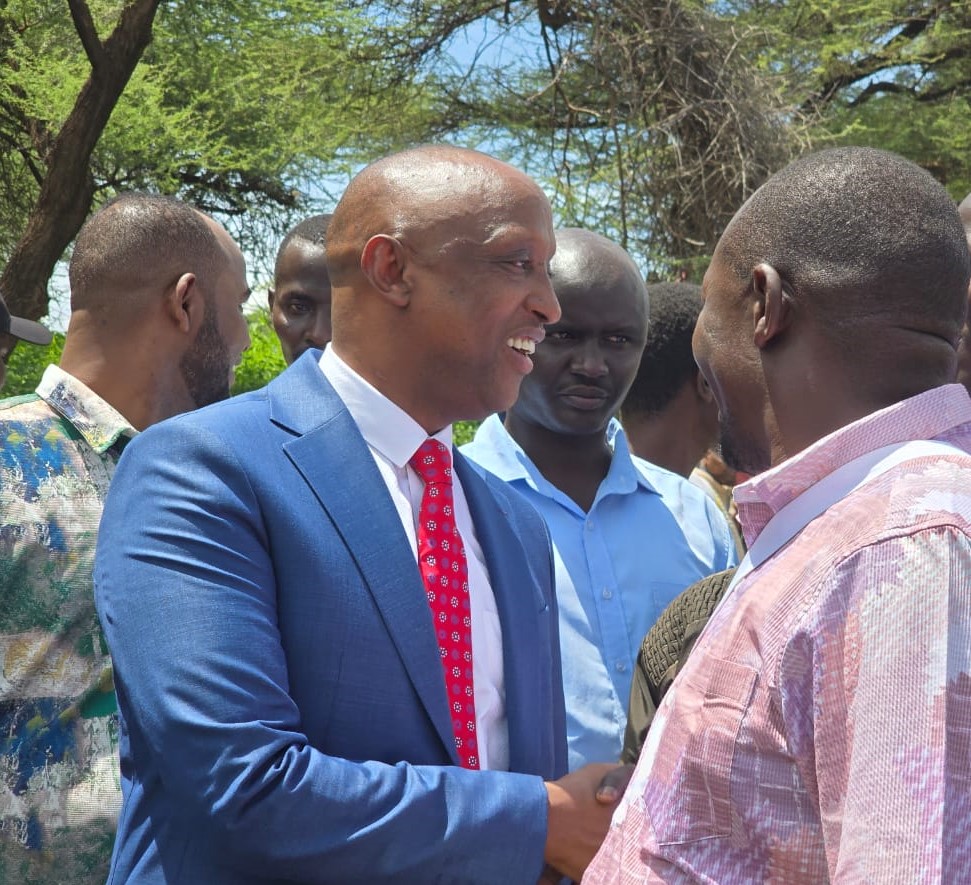By TWV Team
Nairobi Governor Johnson Sakaja may have survived an impeachment bid following interventions from President William Ruto and ODM leader Raila Odinga, but he faces an uphill battle to persuade city residents to re-elect him in 2027.
To unlock the full article:
Choose one of the options below:
- Ksh 10 – This article only
- Ksh 300 – Monthly subscription
- Ksh 2340 – Yearly subscription (10% off)
The governor secured a 60-day grace period to address grievances raised by Members of the County Assembly (MCAs). These include the timely allocation of bursary and ward development funds, improved service delivery such as garbage collection, repairing strained relations with the assembly, and adopting a more open leadership style by operating from City Hall instead of his private office at Riverside Drive.
In recent months, Sakaja has made symbolic gestures to appease the MCAs, including joining workers to collect rubbish on the streets. Yet, he has also taken a combative approach, accusing the 70 ward representatives who signed the impeachment motion of being politically motivated.
Speaking on a local radio station on 16th September, Sakaja defended himself against some of the accusations. On the issue of bursary delays, he blamed the Controller of Budget, Margaret Nyakango, for imposing a temporary ban rather than attributing it to shortcomings in his administration. He further noted that he had disbursed Ksh1.6 billion since assuming office, compared to the Ksh3 billion cumulatively distributed by his predecessors, Evans Kidero, Mike Sonko, and Ann Kananu.
On delays in ward development funds, Sakaja pointed the finger at the National Treasury. He admitted, however, that the impeachment attempt had been a “lesson learnt” and warned of tougher political battles ahead.
Meanwhile, former Principal Secretary Irungu Nyakera, who has declared his bid for the Nairobi governorship, has dismissed claims that lack of revenue is the root of the capital’s woes. He argues that Nairobi’s revenue problem stems from poor collection and mismanagement rather than limited resources.
“I have heard the current leadership of Nairobi say they cannot deliver services because there is no money. Let me make it very simple. Nairobi doesn’t have a revenue problem. We have a collection and a spending problem,” Nyakera posted on his X account.
He noted that while the county collects less than Ksh 14 billion annually, its potential is at least Ksh 40 billion. “When I become governor, I will fix this without charging a single extra coin to anyone already paying taxes,” he added.
Nyakera’s campaign agenda includes introducing a digital addressing system to ensure every property and business has a verifiable address. “Today, half of Nairobi has no street names, which means half the city is invisible. With digital addresses, Nairobi will finally conduct automatic billing, eliminate ghost businesses, and ensure everyone pays their fair share of land rates, business permits, development fees, and parking fees,” he explained.
Sakaja, who ran on a United Democratic Alliance (UDA) ticket in 2022 under the slogan Let Us Make Nairobi Work, was elected governor with 699,392 votes, defeating Jubilee Party’s Polycarp Igathe, who garnered 573,516.
For his re-election bid, Sakaja faces a crowded field. Nyakera, Embakasi East MP Babu Owino, and Makadara MP George Aladwa are among those eyeing the seat. While Raila Odinga once hinted at supporting Sakaja, shifting political alliances, particularly his pre-election deal with President Ruto, may undermine the governor’s chances.
Reports suggest Odinga is leaning towards backing Aladwa, a long-time ODM stalwart whom he previously persuaded not to contest the Vihiga parliamentary seat in order to remain a key party mobiliser in Nairobi.
Babu Owino, meanwhile, is considering running as an independent candidate. His strong youth support base could make him a formidable contender, complicating the race for Sakaja and others.
Nyakera, as patron of the Democracy for Citizens Party (DCP) associated with former Deputy President Rigathi Gachagua, could also tap into the influential Mt Kenya diaspora vote.
At one point, Gachagua openly clashed with Sakaja over the management of city affairs, accusing him of undermining Mt Kenya business interests, especially in the matatu sector, despite their role in his election victory.
With shifting alliances, growing discontent at City Hall, and ambitious rivals positioning themselves early, Governor Sakaja’s political survival beyond his current term looks increasingly precarious.
[/full]




